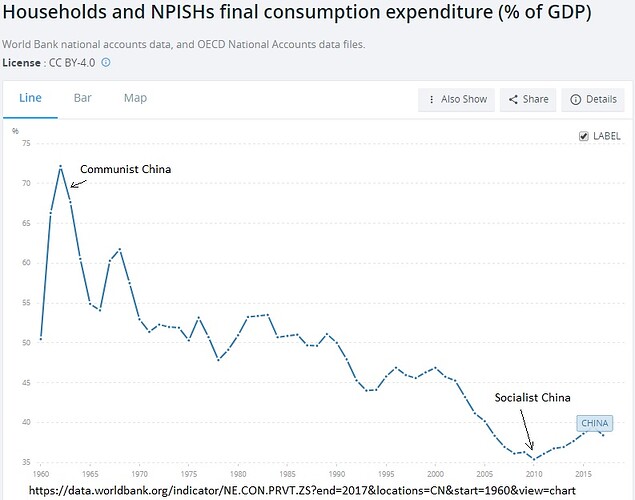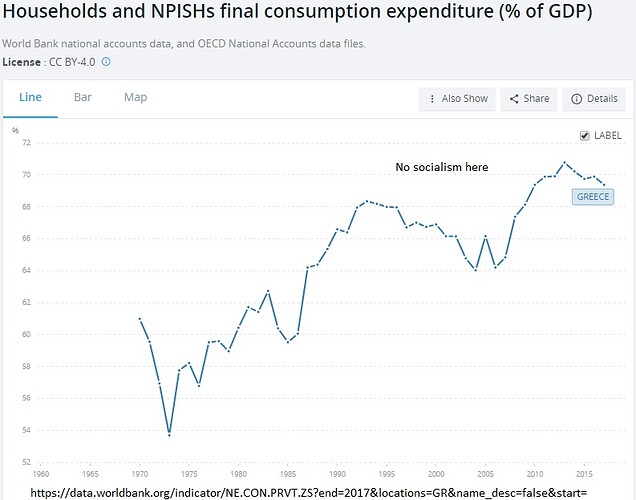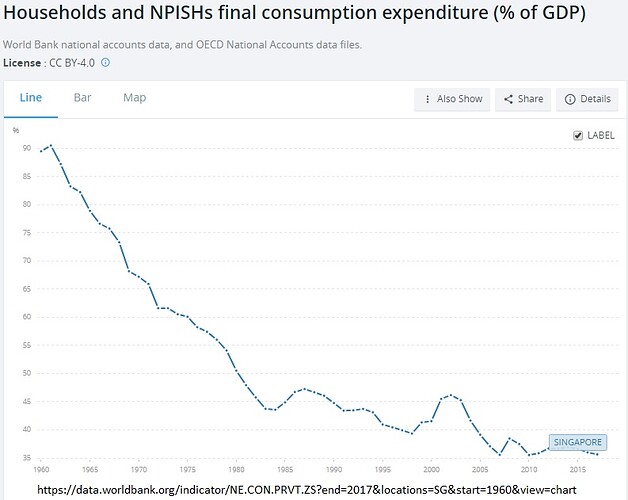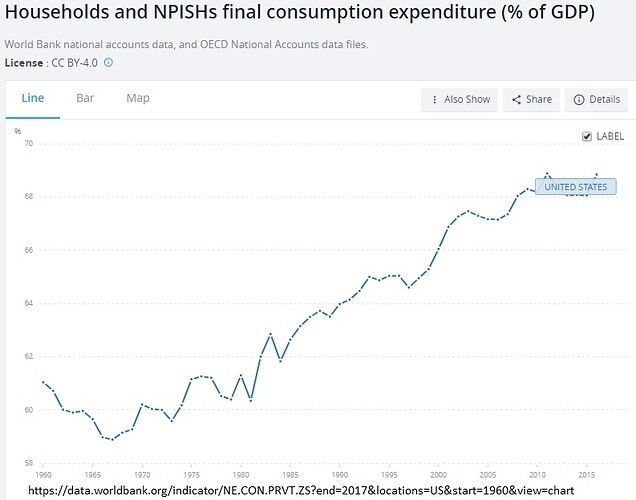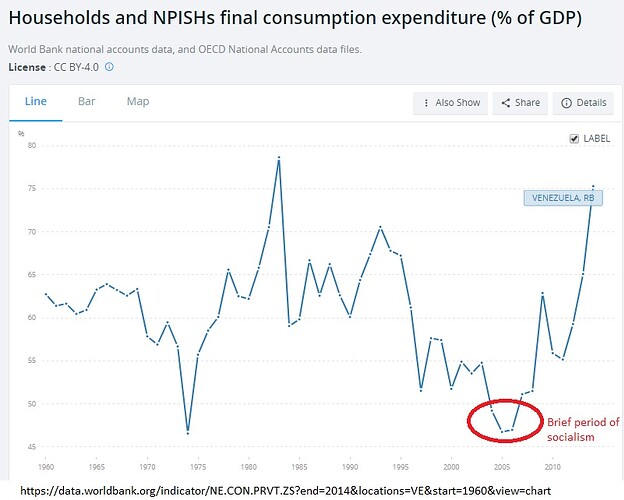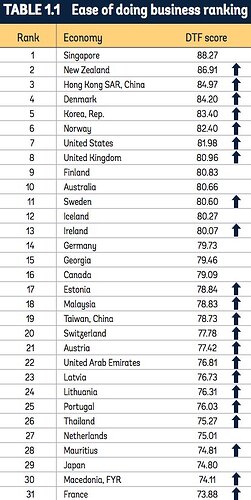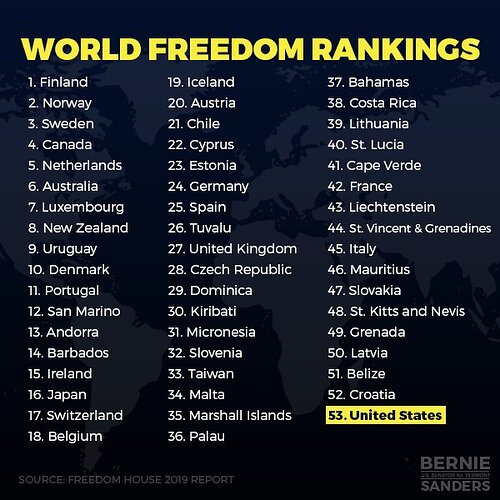This thread should serve as the last nail in the capitalist coffin.
I’ll open by not appealing to nor relying on Noam Chomsky, but simply adding confirmation to my central exhibit while allowing him to tell you what I’m about to talk about:
Start at 3:00 ish
[youtube]https://www.youtube.com/watch?v=XX4NAETMXsc[/youtube]
The ratio of state expenditures to GNP worldwide, and it shows what people should have known, is differentiated: there are some areas of the world where in fact the state is being minimized, that is: reducing relative to GNP. Namely those areas that have been under the influence and control of the international financial institutions in the United States: it’s sub-saharan Africa and Latin America. In those areas, in fact, state expenditures relative to GNP are low and declining, and they are also all economic disasters. In the rich countries, the OECD countries, that’s the place where the ratio of state expenditures to GNP is the highest, and it’s been going up, quite sharply in the 1980s and it’s still going up, though less sharply in the Asian growth area, which has been essentially because of World Bank / US domination. State expenditures relative to GNP have been going up, they’re not as high as the rich countries, but going up, so what you have there is a picture namely: the place where the international institutions: the World Bank the IMF / US government, in the areas where they can pretty much control policy, the state is indeed declining; it was always lower it’s getting still lower, and in fact poverty’s increasing in absolute terms as well as relative terms. In general, there’s an economic disaster, except for a small sector of the population. In the rich countries, exactly the opposite is happening. One might want to draw some conclusions from that.
Indeed, let’s draw some conclusions.
First, the data.
Private consumption as % of GDP by country data.worldbank.org/indicator/NE … view=chart
That site is fairly amazing. Data can be sorted ascending/descending as well as graphing multiple countries since 1960.
This site confirms the data: ceicdata.com/en/indicator/v … ominal-gdp
The significance of this lowly statistic is that the larger the number, the larger the proportion of GDP that is not government spending. In other words, it’s a measure of how capitalistic (anti-socialistic) a country is.
So which is the most capitalistic country? Venezuela, of course! ![]()
Here is a list of countries in order of decreasing public spending:
Brunei
Macau SAR
Qatar
Luxembourg
Ireland
United Arab Emirates
Singapore
Oman
China
Saudi Arabia
Algeria
Norway
Kuwait
Sweden
Netherlands
Bahrain
Malta
Thailand
Iran
Denmark
Botswana
Czech Republic
Slovenia
Panama
Iceland
Belgium
Austria
South Korea
Germany
Estonia
Hungary
Russia
Switzerland
Finland
France
Slovakia
Taiwan
New Zealand
Israel
Japan
Ivory Coast
European Union
Mongolia
Belarus
Indonesia
Malaysia
Australia
Canada
Kazakhstan
India
Morocco
South Africa
Turkey
Spain
Latvia
Chile
Ecuador
Azerbaijan
Croatia
Italy
Romania
Brazil
United Kingdom
Lithuania
Macedonia
Laos
Poland
Paraguay
Mexico
Portugal
Sri Lanka
Peru
Uruguay
Bulgaria
United States
Georgia
Vietnam
Hong Kong SAR
Colombia
Bolivia
Argentina
Bangladesh
Kyrgyzstan
Greece
Tunisia
Ukraine
Philippines
Cyprus
Nepal
Cambodia
Mauritius
Bosnia and Herzegovina
Serbia
Sudan
Kenya
Armenia
Malawi
Nigeria
Pakistan
Albania
Egypt
Montenegro
Jordan
Lebanon
Moldova
Kosovo
Yemen
Syria
Tajikistan
Venezuela
So, who wants to move to a capitalist country? ![]()
Some notable graphs:
Evidently communism and socialism aren’t the same.
It doesn’t appear to me that Greece could handle more austerity.
Singapore is quite an interesting case as it’s often the posterchild for capitalism, but how can that be when it ranks 7th for the most government spending?
I’ll defer to the work of the people’s policy project:
How Capitalist Is Singapore Really?
[i]The Singaporean state owns 90 percent of the country’s land. Over 80 percent of Singapore’s population lives in housing constructed by the country’s public housing agency HDB. The Singaporean state is largest shareholder of more than a third of the country’s publicly-traded companies, and build out a sovereign wealth fund that holds tens of trillions of dollars of corporate assets.
Call me old-fashioned, but I don’t generally associate state ownership of the means of production with capitalism. One way to see whether libertarians or conservatives actually think Singapore’s system is uber-capitalistic is to imagine how they would respond to someone who ran a campaign in the US aimed at bringing the country up to the Singaporean ideal.
In this campaign, the candidate would say that the state should expropriate nearly all of the land in the country, build virtually all of the housing in the country, move almost everyone into public housing leaseholds, become the largest shareholder of more than a third of the country’s publicly-traded companies (weighted by market capitalization), and build out a sovereign wealth fund that holds tens of trillions of dollars of corporate assets. Would this campaign meet with a warm libertarian embrace or perhaps be derided as a bit socialistic?[/i] peoplespolicyproject.org/20 … re-really/
I’ll continue in the next post…
